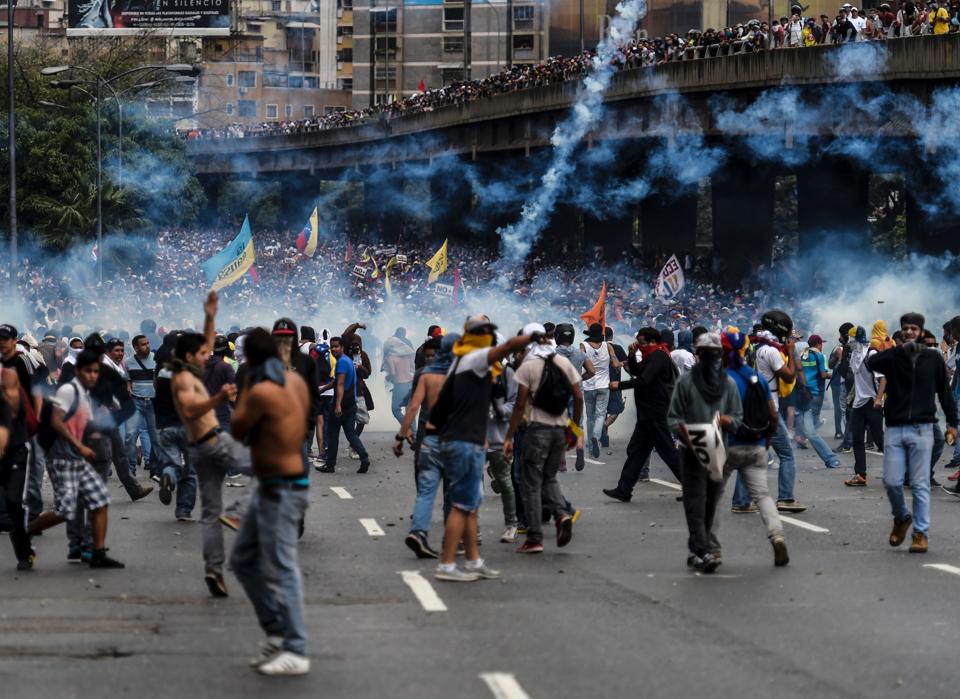Hundreds of thousands of protesters took to the streets of Venezuela on Saturday, day 50 of an angry and sometimes deadly showdown with the unpopular government of President Nicolas Maduro. Scores of people were injured in the demonstrations.
The opposition blames Maduro for the economic mess in oil-rich Venezuela, demanding early elections to replace the socialist who took over from the late Hugo Chavez. Seven weeks of street protests have left 47 people dead.
As with many of the previous marches in the crisis-hit country, police fired tear gas at protesters in the capital suffering from dire shortages of the most basic of goods.
In Caracas alone, some 160,000 marched through the city trying to reach the Interior Ministry in the city center, said Edinson Ferrer, spokesman for the opposition coalition MUD, citing a preliminary estimate.
Police firing tear gas broke up the demonstration and protesters responded by throwing rocks and Molotov cocktails.
At least 46 people were injured in the eastern district of Chacao, the authorities said, including a woman hit by a vehicle.
Riots were taking place on the city’s outskirts overnight.
In the western city of San Cristobal in Tachira state, an estimated 40,000-plus took to the streets. Maduro ordered 2,600 soldiers to Tachira this week to quell street violence and looting.
In Caracas, demonstrators carried signs that read “#We are millions against the dictatorship” and “#No more dictatorship!”
The protesters blame Maduro for shortages of food, medicine and such basics as soap and even toilet paper, saying he is maneuvering to dodge calls for early elections.
“Fifty days and they’ve assassinated 50 people… Despite everything, on day 50, amid more repression, there is more resistance and more fight for Venezuela,” said two-time presidential candidate and de facto opposition
leader, Henrique Capriles.
He was surrounded by supporters when he spoke at the Caracas march.
One of Capriles’s lawyers delivered a report on the Venezuelan crisis to the United Nations High Commissioner for Human Rights on Friday after Venezuelan officials “canceled” the opposition leader’s passport, preventing him from flying to New York.
The turnout for Saturday’s demonstrations came close to the biggest rally during seven weeks of protests, when several hundred thousand people came out on April 19. The demonstrations have degenerated into violence that, besides the 47 dead, has left hundreds injured, 2,200 detained and some 161 imprisoned by military tribunals.
On the other side of town, some 2,000 pro-government workers sang and danced as they staged a rival march to show their support for the president’s controversial plan to elect a constitutional assembly to rewrite the constitution.
On Thursday, the United States imposed sanctions on the chief judge and seven other members of Venezuela’s Supreme Court and President Donald Trump described Venezuela’s humanitarian situation as “a disgrace to humanity.”
Maduro responded by telling Trump to stop meddling in Venezuela’s affairs.
